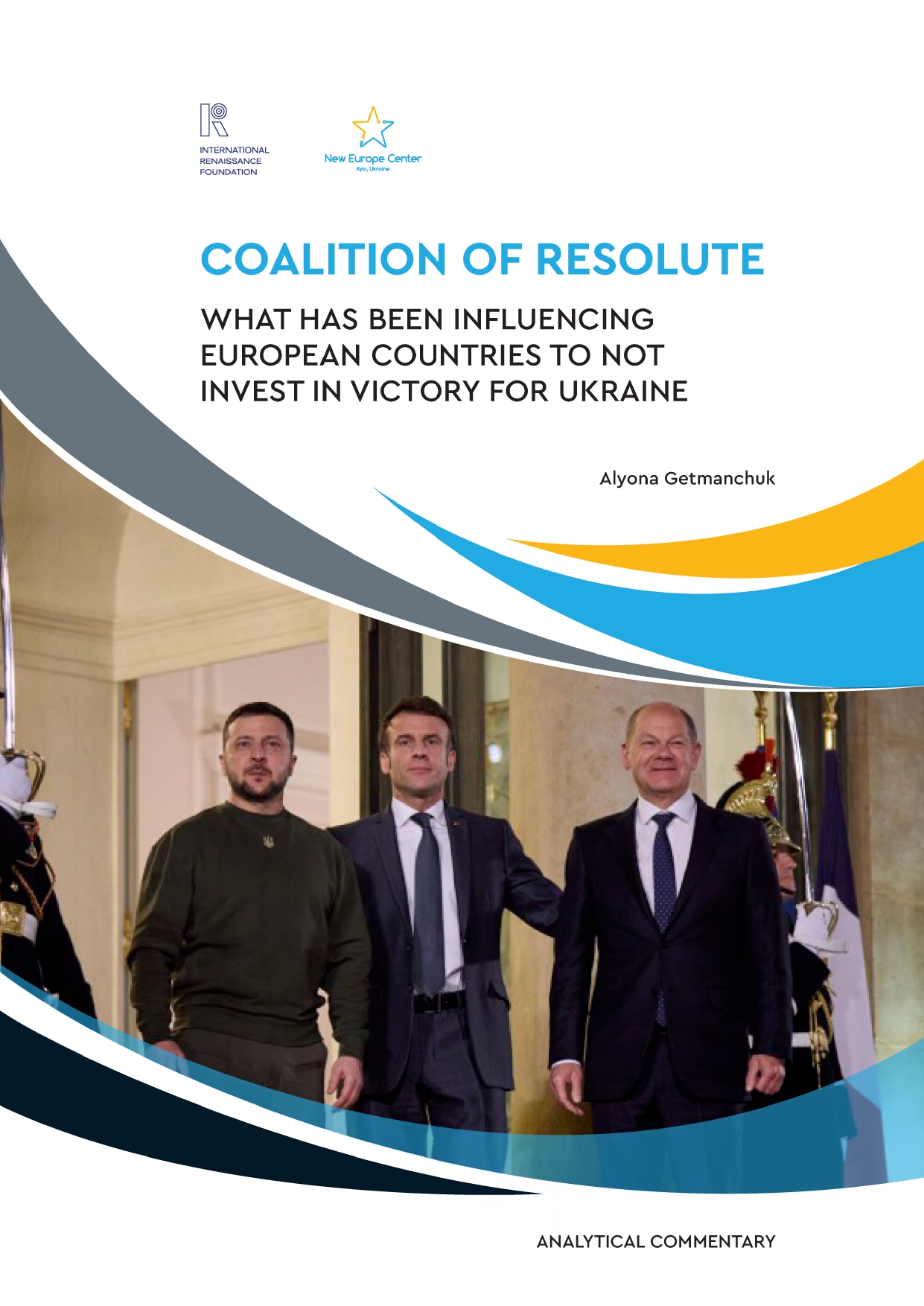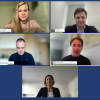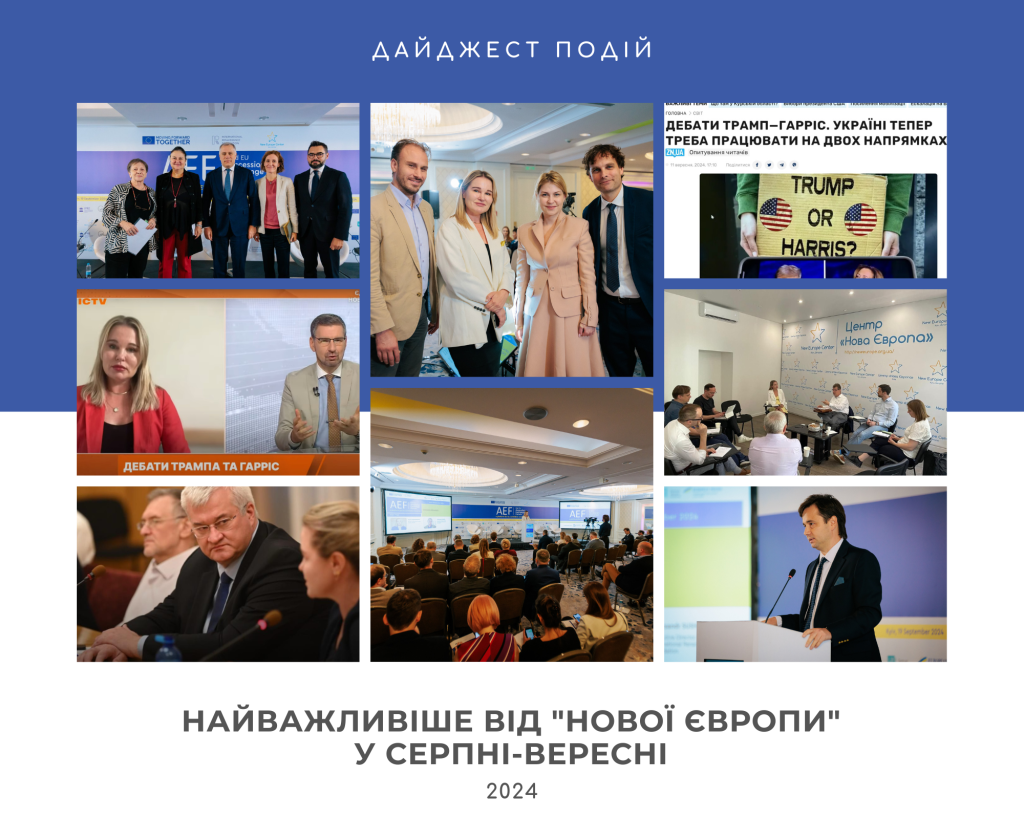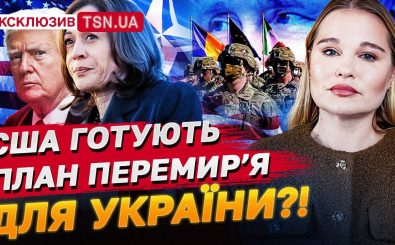
A “Zeitenwende” – a pivotal turning point, such as that referred to by Chancellor Scholz a few days after the February 2022 invasion – has taken place. Not in Germany however, but in France. This is the first conclusion to have been made immediately following another round of advocacy visits to France, Germany, and Italy. France has changed most notably, classifying the Russian Federation as a threat and minimizing fears of elimination. If one specifically compares the German chancellor’s and the French president’s respective behaviors, the conclusion will intuitively be made that today’s Scholz more closely resembles the earlier Macron. Albeit with a fatter public wallet.
Still, such a first impression is not without certain nuances. Some may argue that Germany is now also witnessing a “Zeitenwende,” one not concerning the Russo-Ukrainian war but Germany itself, what Scholz had truly meant by the concept of a turning point. It means Berlin rethinking its need to invest more in defense, supported by a solid “check” of EUR 100 billion, and the attempt to reach the NATO defense standard of 2% of GDP, which still seems quite financially fragile and tenuous…
Others may say that this Zeitenwende came about in France at the point that the threat posed by the Russian Federation started being perceived as a matter of security, beyond just one of business. Hence, the largest sales of Russian liquefied natural gas to the EU the first three months of this year have been to France, along with the continued cooperation with Rosatom. The same company terrorizing Europe by seizing one of the largest nuclear power plants on the continent – the Zaporizhzhia NPP.
Although Europe remains more united in supporting Ukraine in the third year of the war than it ever was about the pandemic or the financial crisis, which is indeed a positive point, opinions on how to respond to the Russian threat have more differences than similarities, even those coming from the EU’s three G7 countries.
This naturally complicates the task of creating a Coalition of Resolute. A coalition of countries willing to firmly specify how, and most importantly, why Ukraine must be helped, not just to prevent its collapse as a state, but also help end the war in a way that most Ukrainians would deem a victory. Having these differences is in fact better than an unambiguous conformity with the position of those supporting a policy of self-restraint concerning the Russian Federation. After all, only through such discussions can the objectives of supporting Ukraine be determined. Not only in Paris, London, Prague, or Copenhagen but also in Washington and Berlin.
A majority of the EU’s or NATO’s countries is not required for a Coalition of Resolute. 5–6 states with adequate political weight, and no less importantly, the political courage, resources, and military capacity will be enough. None of the European countries that are potentially ready to join such a coalition currently have all the necessary characteristics: if they have political weight and courage, they lack resources (France), if they have resources, they lack other two characteristics (Norway, for example). Thus, a comprehensive LEGO approach should be applicable: assembling the necessary elements at the level of individual countries ready to act more decisively.
However, we should first analyze the current differences between countries in how they perceive the Russian threat and US positions as a starting point in making certain decisions. This is also something worth paying special attention to for Ukraine.
Perceiving the Russian threat: how can it ricochet?
The first step to an appropriate response to the Russian Federation’s war in Ukraine is to recognize the threat Russia poses, not only for Ukraine, but the entire European continent. To recognize that this existential war in Ukraine could become the same one for Europe in its current boundaries.
Germany has only started to perceive Russia as a threat. Over the past year, Boris Pistorius, the Minister of Defense who has been one of Germany’s most popular politicians in Germany for a long time, has been actively working to plant this feeling not only among the country’s military but also at the level of the political establishment and civil society. He has partially succeeded, albeit just partially: even within his party, he is clearly the minority among all concerns of escalation risks related to the Russian Federation that are weighed when making decisions concerning Ukraine.
In France on the other hand, the highest political leadership of the country, the President of the Republic, has become aware of the threat the Russian Federation poses. According to all available information, he currently views Russia as the main destabilizing force not only in Europe but perhaps the entire world (unlike the USA, where China is viewed as threat No. 1). Such a classification of the Russian Federation is supported by clear destabilizing actions taken by Moscow against France: from almost 150 provocative acts against French armed forces in various regions of the world to regular cyberattacks on critical infrastructure and gross interference in the country’s internal politics, Macron cannot remain indifferent even if he will not be running for reelection, unlike Stoltz.
However, recognizing a threat does not always imply the appropriate reaction to it. A significant difference between individual European countries – between Germany and France in particular – is that in some capital cities (Paris) the investment in the security of Ukraine is seen as insurance for their own and Europe’s security, whereas in others (Berlin), there lies the choice of whether to invest in their own security or help Ukraine. The principle: It is a war in Europe, but not a European war.
Therefore, the more and more Russia’s threat becomes apparent in the political offices of Berlin and other capital cities across Europe, the more it will be used as a reason – or rather as an excuse – for this or that weapon/equipment to be kept for the defense of their countries in case of a potential attack by the Russian Federation, instead of being sent to Ukraine.
Moreover, the argument that an attack may well not take place if Ukraine perseveres, against the news of Russian military successes on certain areas of the front, has been pushed to the background even in the countries where the defense of Ukraine is deemed an indirect investment in their own security. Then there are other countries that have an at least partial understanding that their country is actually “shielded” from Russian aggression by not one, but two shields: NATO on one side and Ukraine on the other.
The way the growing awareness of the threat posed by the Russian Federation – or at least its utilization for political purposes – has been bouncing ricochets at Ukraine became clear when the urgent provision of additional air defense equipment to Ukraine was considered. One German diplomat explained the reluctance of European countries to “part with” their systems during a meeting in Berlin, where possible aggravation of relations with the Russian Federation was implied to potentially mean missile strikes. Thus, their air defense systems are being relied upon as the main element to prevent such an escalation. However, in the German capital, where I had been working in the days of consideration to provide additional Patriots, another argument could often be heard: the Americans, who have much more of them (which is true), should first provide them, and Germany has already previously provided Ukraine with two batteries (one, however, on loan) from its already limited arsenal. Despite this, Berlin changed its opinion on providing Ukraine with an additional battery in a matter of days – from an almost downright “no” to “yes.” They made a positive decision and thus proved that Scholz’s Germany is capable of independence, determination, and – no less importantly: efficiency – upon the existence of responsible political will at the highest level.
That said, despite the opinion that Ukrainian security is also French and European security that is popular in Paris, there was no such positive decision on the Franco-Italian SAMP-T, which (at least as of this writing) is currently in Romania and could be proving itself much more useful in Ukraine. Not at the Patriot level, of course, but still. At almost every meeting in Rome and especially in Paris (as this system belongs to France), we raised the question of its relocation to Ukraine, while some French counterparts made it clear that it was crucial to defend Romania in case of potential attacks by the Russian Federation on that country. Some day, in the future.
So, instead of accepting the fact that Russia’s war against Ukraine is theirs as well, the EU countries have mostly started preparing for their own wars while emphasizing at meetings: “It is Ukraine at war with Russia, not us.” Or, “You should be coming up with the strategy, not us. We’re just sending you aid.”
Here lies another difference between various European countries. Some of them realize that even if they are not at war with Russia, Russia is nonetheless waging war against them; whereas others still do not see this. This war indeed differs from the one being waged against Ukraine in that it is mostly a hybrid war, but the former are all perfectly well aware that this is how the Russian Federation started its aggression against Ukraine back in 2014. This awareness has become increasingly obvious in France, but it is still low in Germany and even lower in Italy, where the Russian disinformation machine, highly professional when exploiting traditional pacifist Italian sentiments, diligently works every day.
Finally, the third difference in the context of the Russian threat perception is the extent to which some EU countries insist on keeping the Putin regime in power in the Russian Federation after the war in Ukraine is over. Unfortunately, sometimes it seems as if some of our Western partners, mostly Berlin, are more anxious about the existential nature of this war for Putin’s regime but not for Ukraine. The said may be explained by the fact that Chancellor Scholz’s idea of the end of the war is “stuck” on a complex formula: “so that Russia does not win and Ukraine does not lose,” though wouldn’t it be so much simpler, even in a grammatical sense, to say “so that Russia loses and Ukraine wins”?
With the start of Ukraine’s accession processes to the EU, key European countries should indeed be interested in Ukraine entering the EU as a highly functioning state, with fewer funding demands for reconstruction, and without any disputed or occupied territory.
Beyond this, there is a particular paradox in considering the Russian Federation a threat and earnestly preparing to fight it off, while at the same time trying to preserve the regime embodying the causes and the reasons that this very threat still exists.
Finally, when we mention the amount of aid, we should remember that we are certainly very grateful, especially to Germany, being Europe’s top donor in Europe. That said, nowadays, it is the moment in the war when we should discuss not only the amount but also the purpose of the said aid provision. Are such investments justified, if their purpose is keeping Putin in power at all costs? Do some top politicians and businessmen in Germany see him more as a “German in the Kremlin” rather than an “international criminal in the Kremlin”? Is this aid aimed at leading to a delusional stalemated conflict, which, in my opinion, the traditionally security-anxious Germans still see as having more stability than the possible collapse of the Putin regime and the consequences of such?
Negotiations: what is Europe’s role?
As we gradually move on to the topic of negotiations, which has caused certain disagreements in European capital cities. In France, during three days of meetings with various departments and experts, an impression was felt that the topic of negotiations simply does not exist – no one asked about it and no one responded to our remarks related to the topic in one way or another.
In Italy and Germany, this topic is simply a tough call, up in the air, and somehow emerges when talking and discussing “war and peace.” However, if in Rome the topic of negotiations is considered a sign of good manners, and Meloni’s government has even been “packing” aid for Ukraine to speed up and strengthen Kyiv’s position at the negotiations, then in Germany it is more likely bad manners in a political sense. At least when talking to Ukrainian delegations.
Not so much that Berlin politicians are still feeling burned by the Minsk agreements, but rather because they would be happy to have the initiative be purely Ukrainian in this matter. The mindset that is becoming more spread among high political offices is a mixture of fear, fatalism, and low self-esteem, something along the lines of: Ukraine is not capable of defeating the Russian Federation by military means, even with all our help; we are not capable of changing this, so we need to be ready for negotiations as soon as Ukraine asks for them. The difference between Germany and Italy in this matter is that a certain arrangement including territorial concessions in Rome – “peace for land” (they directly asked us this at one event), whereas in Germany, one will hear the word “freeze” more often.
Therefore, if you ask me to define the main problem with Berlin’s perception of the war, I would put it as follows: the victory of Ukraine is considered a more destabilizing factor than a frozen stalemate in this war. There is clearly still a lot of work to be done by Ukraine to explain why such freezing does not concern a ceasefire, let alone stability. This is not easy, as those who are truly shaping strategies are more willing to meet American experts, who have been fancied negotiations since the first day of the invasion far more intently than their Ukrainian or European counterparts, who are convinced that given the current situation, using the very word “negotiations” is inappropriate as it assumes the unconditional surrender of Ukraine.
Chancellor Scholz has to sell his “voters” at least the illusion of stability, since, according to all the available information, he is going to run in the next elections using the image of “chancellor of peace.” His task is to balance between the demand for support for Ukraine, which is still high enough in society, and the fear of “drawing” Germany into the war, in particular, through the provision of long-range Taurus missiles, even if it sounds absurd.
It is an interesting fact that the countries discussing concessions on the part of Ukraine (namely, Germany and Italy) most often are also the countries with the lowest level of public readiness (of all European states) to fight should the Russian Federation attack Europe, according to the data of the latest opinion polls. On the other hand, in France, 51% of young people aged 18–25 said they would be ready to fight in Ukraine if it were required to protect the interests of France (research held on requests of IRSEM and DGRIS – two analytical centers under the country’s Ministry of Defense).
Another serious question of interest to European capital cities in the context of potential negotiations: will Europe be represented at the negotiating table, and if so, by whom?
The point is that it seems as if Moscow and Washington have already decided on the list of parties for the negotiations, which does not include many European representatives at the table. It includes the USA, maybe China supporting the Russian Federation, but it is not quite clear about the EU or European NATO member countries. This situation cannot be acceptable for Macron, as well as many Europeans, who, if not yet, may well begin to raise questions like: if the Americans keep saying that this is a European war, why are the Europeans, who are looking for ways to end the war, not being represented? More broadly, why should European capital cities accept a decision where Europe is paying more, but America is the one negotiating with Russia?
Is everything that desperate without the USA?
One indisputable difference between the various capital cities of Europe is also their levels of readiness to make their own decisions and take action concerning war with Russia under Washington’s policy.
Given the strategic uncertainty in the USA, Macron’s idea is that Europe cannot constantly look back at Washington and be a hostage to America’s internal dysfunctional politics. Moreover, the Biden administration’s strategy of deterrence is at this point hardly unclear. Of course, such leadership is acceptable to those on the European continent willing to take less decisive and more calculated steps to avoid escalation risks in Ukraine.
It is not surprising that Macron – and Biden has mentioned this at least twice in his speeches – has been suspicious when asking the current US president whether America intended to stay after Biden had just become president and solemnly announced the return of the USA to power at the NATO summit. He was the one promoting the idea of “strategic autonomy” for years, which would include the European army. Following regular visits to France the previous year, I have got the impression that deep down some French strategists would even rejoice at the potential return of Trump. They would have more arguments when developing their concept, which moreover is already being transformed from “strategic autonomy” into “strategic sovereignty” – to be more tolerable by those European countries that are still afraid of the word “autonomy” in the context of interaction with the USA, and who would rather – either because of many years of security dependence, or the American military presence, or simply by inertia – adjust their policies to the political trends set by the White House.
That is the reason we may discuss the division between countries where the US position is the starting point for providing aid to Ukraine or approving crucial political decisions, and where such a starting point is the real need of Ukraine, or to be more precise, Europe.
The lack of functionality in Congress the last six months has forced even those countries that look up to the US most often to be encouraged a bit. For example, Germany, which has repeatedly mentioned its full dependence on the US nuclear umbrella, and therefore obligation to synchronize all its security decisions with it. We should agree that the position is quite logical and is difficult to deny.
However, a certain increase in Biden’s ratings and the aid to Ukraine being unblocked by Congress is a huge temptation to get fully synchronized with Washington’s position once again. Certain countries’ institutions claim that those reserve resources “booked” for Ukraine by some European countries are to be allocated just “in case of Trump’s victory” and a complete cutoff of aid to Ukraine on the part of the USA. Nowadays, Ukraine should signal as much as possible that the US aid unblocking has ensured the European countries the opportunity to design a better “Plan B” for Ukraine, with the leading role to be played by Europe, not the US, regardless of the next US president.
Significant common denominator
That said, perhaps the most obvious common feature in the approaches of European politicians intended to end the war today is the issue of interdependence between Ukraine’s desire to continue its struggle and Europe’s support. “It’s like we’re in a vicious cycle: the more you show commitment to fighting, the higher our motivation to help you. Still, we realize that the more we help, the more you are motivated,” noted one high-ranking official in France.
One of the most popular issues in all capital cities is mobilization and related processes. They are aware only of the negative nuances accompanying the process. The signal is quite simple: we cannot ensure the mobilization of our resources if you cannot ensure the appropriate mobilization of your people. Even given the third year of the war, the largest number of those ready to fight for their country (more than 60%) in Europe is recorded in Ukraine, while the European media being more than willing to emphasize that “only” 15% of draft-age Ukrainians are currently fighting.
The lack of trust in the top Ukrainian leadership (or its upper management) is increasingly noticeable in European capital cities. Even in Germany, it was said that there were two key reasons why the Taurus decision was not yet adopted: the fear of escalation from Putin, and the lack of trust in the Ukrainian leadership – as if there was no certainty about Ukrainian methods and intentions to use this weapon. This is even if that is contradicted by the German statement that without their professionals it would be impossible to configure and launch the weapon.
***
Complex discussions and sometimes a bit chaotic adaptation processes, those currently being observed in Europe against the background of Ukraine’s entry into a war of attrition, are due not only to the fact that at the beginning of 2024, Europeans were faced with a situation forecast for the beginning of 2025 – when Europe would have to undertake much greater responsibility for Ukraine and the future of its continent after the US elections and a potential Trump victory. However, these processes have also caused several state institutions of European countries to actually admit that according to their internal analysis, the war was supposed to end in 2024, so they calculated all the resources for Ukraine accordingly. The good news is that they see 2025 as a year when Europe – in particular in terms of its defense production – will act more confidently and have greater capabilities to aid Ukraine. And this “early” preparation of Europe starting this year may indeed prove itself quite prudent.
PDF-version is available here.
The material was prepared with the support of the International Renaissance Foundation. The material reflects the position of the authors and does not necessarily coincide with the position of the International Renaissance Foundation.







